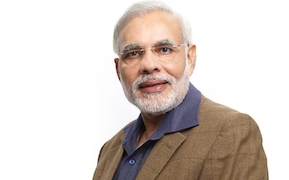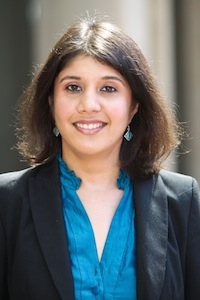In spring of 2014, a record number of Indians participated in the world’s largest democratic exercise, delivering a historic win for the Bharatiya Janata Party and its candidate for prime minister, Narendra Modi, over the incumbent Congress Party. On Wednesday, October 1, two experts from the Brookings Institution, Bruce Riedel and Tanvi Madan, will visit Washington College to talk about the impact of that election result and the challenges it poses for U.S policy in the region.
Their presentation will begin at 7:00 p.m. in Hynson Lounge, Hodson Hall, on the College campus, 300 Washington Avenue. Sponsored by the Goldstein Program in Public Affairs, the event is free and open to the public.
Bruce Riedel brings decades of high-level international policy experience to his role as senior fellow and director of the Brookings Intelligence Project, part of the Institute’s new Center for 21st Century Security and Intelligence. He also serves as a senior fellow in the Saban Center for Middle East Policy. He has written several books, including The Deadly Embrace: Pakistan, America and the Future of the Global Jihad (2011), and Avoiding Armageddon: America, India and Pakistan to the Brink and Back (2013).
Before joining Brookings, Riedel worked at the Central Intelligence Agency for 30 years, a tenure that included multiple overseas postings and earned a Distinguished Intelligence Career Medal. As a senior member of the National Security Council, he was a senior advisor to the last four U.S. presidents on South Asia and the Middle East. In the 1990s, he served at the Pentagon as Deputy Assistant Secretary of Defense for the Near East and South Asia and was a senior advisor at NATO. More recently, he has advised both the Obama Administration and Britain’s National Security Council on Middle East policy and terrorism. A graduate of Brown (B.A.), Harvard (M.A.) and the Royal College of Defense Studies in London, Riedel teaches at the Johns Hopkins University School for Advanced International Studies.
Tanvi Madan is a fellow in the Foreign Policy program at the Brookings Institution and director of its India Project. Her work focuses on Indian foreign policy, particularly India’s relations with China and the United States. She also researches the intersection of India’s energy policies with its international and security policies. She holds a Ph.D. from the Lyndon B. Johnson School of Public Health at the University of Texas at Austin, a master’s degree in International Relations from Yale University, and a bachelor’s degree in history from Lady Shri Ram College in New Delhi, India.





Write a Letter to the Editor on this Article
We encourage readers to offer their point of view on this article by submitting the following form. Editing is sometimes necessary and is done at the discretion of the editorial staff.